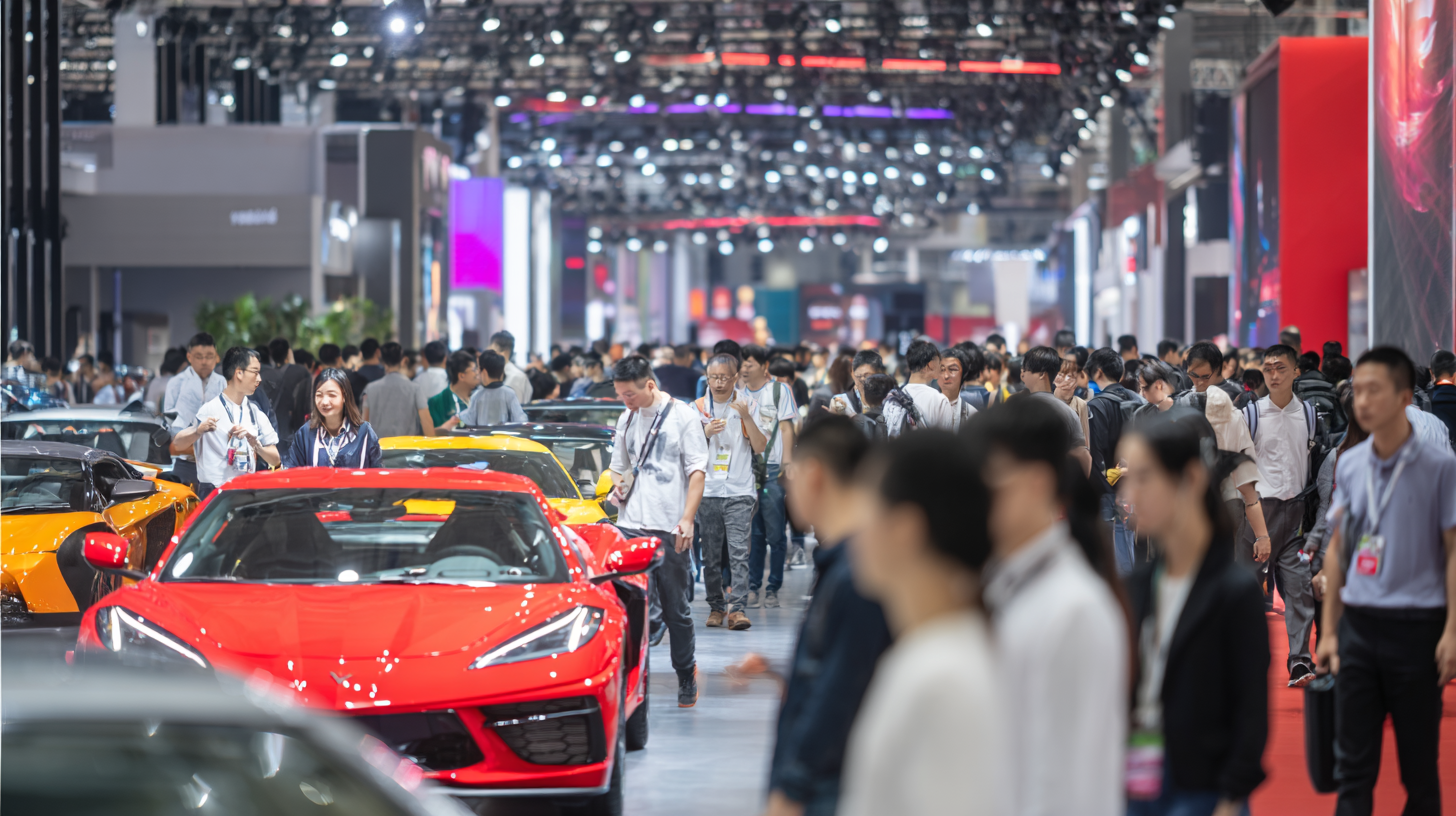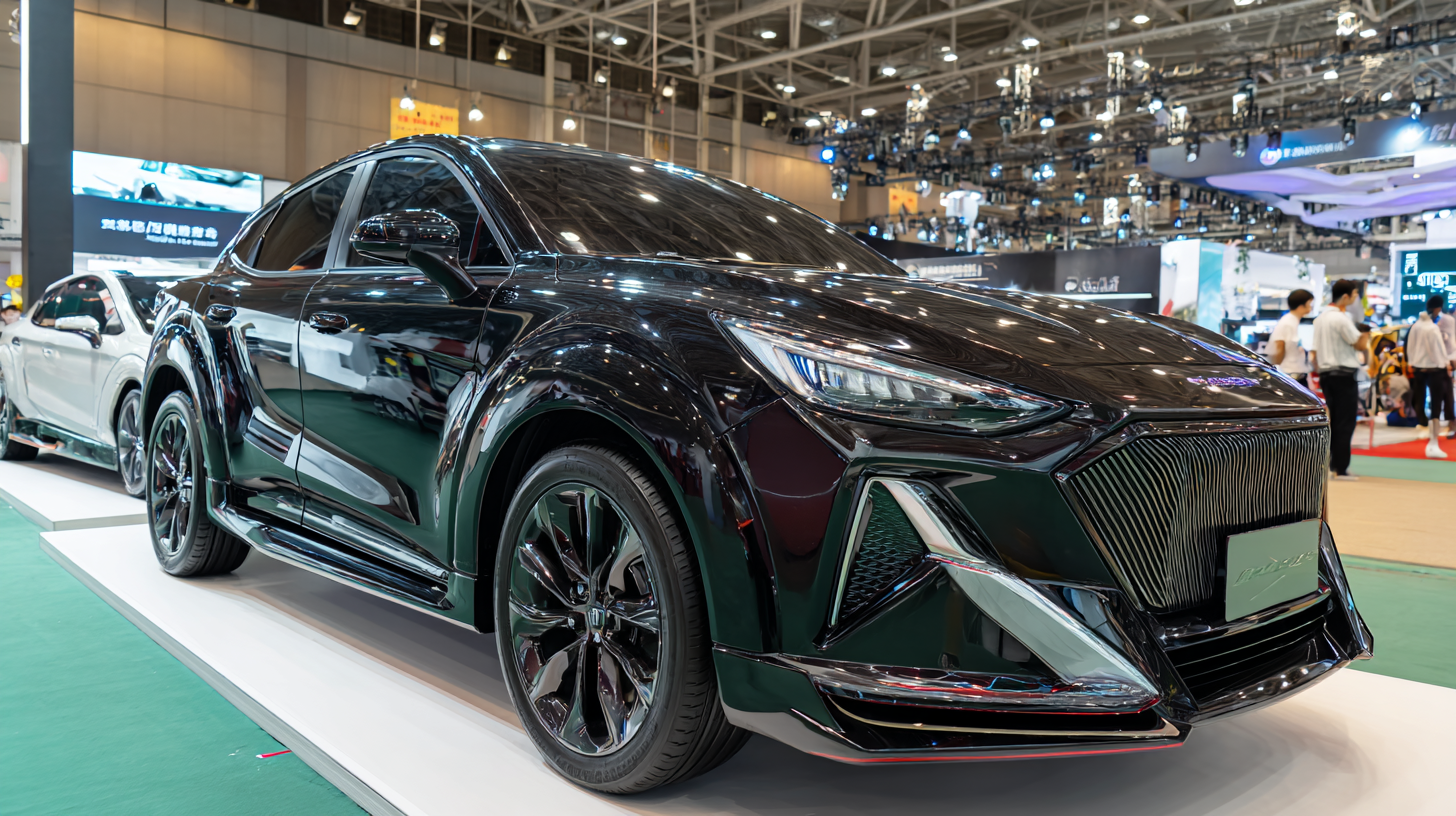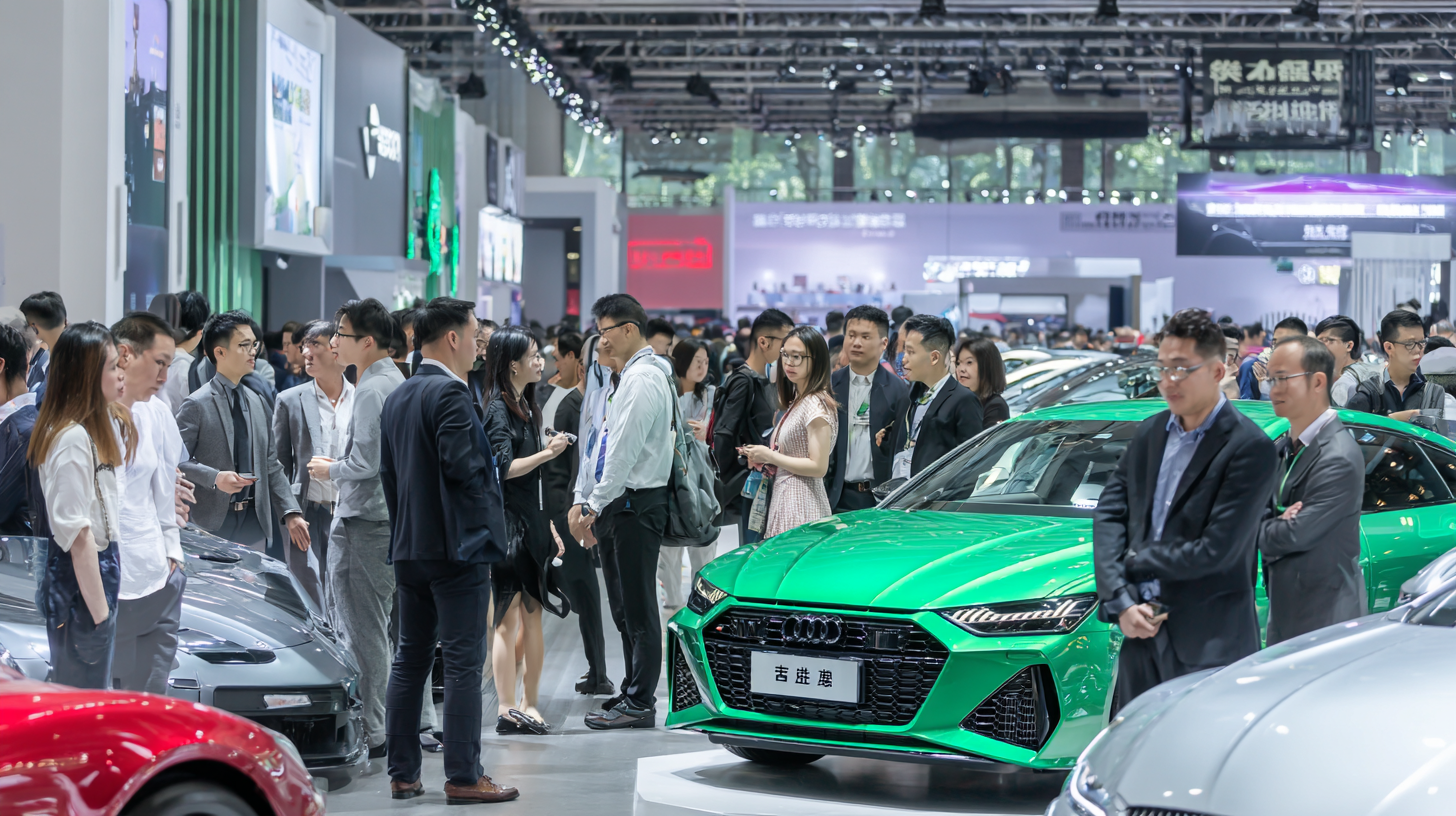Exploring Trends in Car Sub Markets at China's 138th Canton Fair 2025
As we approach the 138th Canton Fair in 2025, the focus on car sub markets in China is set to intensify, reflecting the country's growing automotive landscape. Recent reports indicate that China is expected to dominate the global automotive market, with an estimated market value reaching over $1 trillion by 2025. This surge can be attributed to the increasing demand for electric vehicles and innovative automotive technologies, leading to diversification within car sub markets, such as luxury, electric, and eco-friendly vehicles. Furthermore, according to the China Association of Automobile Manufacturers, the production and sales of new energy vehicles are projected to grow by approximately 40% annually in the coming years.

This context sets the stage for exploring the latest trends and innovations within the car sub markets showcased at the Canton Fair, which will undoubtedly spotlight both established players and emerging startups, all vying for a share in this dynamic sector.
Emerging Electric Vehicle Trends at the 138th Canton Fair
The 138th Canton Fair, set to take place in 2025, is poised to showcase groundbreaking trends in the electric vehicle (EV) market. As global awareness of environmental issues grows, China's automotive sector is rapidly adapting, highlighting innovations in electric mobility.
At this year's fair, a significant focus will be on advancements in battery technology and charging infrastructure, which are crucial for enhancing the EV ownership experience. Companies are expected to unveil next-generation batteries that offer improved range and shorter charging times, catering to the evolving demands of consumers.
In addition to technological innovations, the 138th Canton Fair will also emphasize the integration of smart features in electric vehicles. This includes autonomous driving capabilities and enhanced connectivity, allowing vehicles to communicate with their environment and provide real-time information to drivers.
As manufacturers compete to present their latest models, sustainability will remain a key theme, with many brands showcasing approaches to reduce their carbon footprint through eco-friendly production practices. The fair serves as a significant platform for industry stakeholders to explore these trends and shape the future of electric mobility.
Innovations in Autonomous Driving Technologies Showcase
The 138th Canton Fair in 2025 is poised to highlight cutting-edge advancements in the automotive sector, particularly focusing on innovations in autonomous driving technologies. With the integration of artificial intelligence (AI) into vehicles taking center stage, manufacturers are set to display their latest breakthroughs that promise to redefine the driving experience. The event will showcase how AI algorithms enhance vehicle navigation, safety features, and real-time data processing, bringing us closer to fully autonomous transportation.
At the same time, CES 2025 is emphasizing AI's pivotal role across various domains, including automotive technologies. From autonomous vehicles to smart home connectivity, the influence of AI is evident. This year’s event in Las Vegas will witness manufacturers unveiling their strides in software-defined vehicles and intelligent mobility solutions. These advancements not only demonstrate the technical capabilities of AI but also point towards a future where vehicles are more autonomous, efficient, and integrated into our daily lives. As these exhibitions converge, they highlight a transformative era for the automotive market in China and beyond.

Sustainability Initiatives Shaping the Future of the Auto Industry
At the 138th Canton Fair in 2025, the automotive sector is witnessing a transformative shift driven by sustainability initiatives. As the global automotive market aggressively targets carbon neutrality, China is taking significant strides. According to a report by the International Energy Agency, electric vehicle (EV) sales in China surged by 130% in 2021, reflecting the country's commitment to green technology. By integrating eco-friendly materials and renewable energy sources into their production processes, manufacturers are not only optimizing performance but also minimizing environmental impact.
Tips: For businesses looking to thrive in this evolving landscape, investing in research and development of sustainable technologies is crucial. Collaborating with suppliers who prioritize sustainability can enhance product value and appeal to the growing consumer base that values eco-conscious choices.
This focus on sustainability has led to innovative practices within sub-markets, particularly in autonomous and electrified vehicles. According to reports from the Chinese Society of Automotive Engineers, nearly 60% of new car sales in 2025 are projected to be EVs, indicating a fundamental shift in consumer preference. Companies are now challenged to adopt sustainable practices that align with these market trends, influencing everything from design to distribution.
Tips: To stay ahead, companies should consider hosting workshops on sustainability practices, which can aid in diversifying skills and knowledge within teams. Additionally, exploring partnerships with tech firms specializing in green innovations can cultivate groundbreaking advancements in product offerings.
Key Player Insights: Major Brands and Their Strategic Directions
At the 138th Canton Fair in 2025, the car sub markets in China will showcase significant trends influenced by key players in the industry. Major brands are expected to highlight their strategic directions, particularly in the realm of master data management. Organizations leveraging effective data systems will have a competitive advantage, allowing them to optimize their operations and enhance customer engagement through tailored marketing initiatives.
With the rise of influencer marketing, brands in the automotive sector are also looking to harness the power of micro-influencers and advanced AI-driven platforms. Reports indicate that in 2025, companies that strategically incorporate these elements are projected to see considerable increases in return on investment, effectively capitalizing on the growing consumer demand for authenticity and engagement. Noteworthy is the potential of innovative digital marketplaces, which can further allow brands to meet consumers where they shop, enhancing sales and brand loyalty. As these trends evolve, the automotive sub markets will likely witness a dynamic shift, shaped by the intersection of technology and consumer expectations.
Trends in Car Sub Markets at China's 138th Canton Fair 2025
Consumer Preferences Shifting in China's Automotive Market
At the 138th Canton Fair in 2025, significant shifts in consumer preferences within China's automotive market were prominently observed. According to a recent report from the China Association of Automobile Manufacturers, electric vehicles (EVs) have seen a staggering growth rate of 50% year-on-year, highlighting a substantial transition towards sustainable mobility options. This surge in EV popularity reflects a broader trend driven by increasing environmental awareness and government incentives aimed at reducing carbon emissions.

Moreover, preferences have not only shifted towards more eco-friendly options but also towards advanced technology and connectivity features within vehicles. A survey conducted by McKinsey & Company revealed that over 70% of Chinese consumers now prioritize smart technology integration, such as AI-assisted driving and in-car infotainment systems, when purchasing a vehicle. This indicates a shift in consumer expectations, where performance and traditional automotive qualities are being eclipsed by the demand for innovation and sustainability.
As the automotive landscape evolves, manufacturers are responding by adapting their product offerings to meet these emerging consumer desires, indicating a dynamic market landscape that continues to reshape itself in 2025.
Related Posts
-

Ultimate Checklist for Choosing the Best Car Speakers for Your Sound System
-

How to Choose the Perfect Car Component Speakers for Your Sound System Upgrade
-

What Are Car Audio Component Speakers and How Do They Enhance Your Sound Experience?
-

Ultimate Guide to Enhancing Your Vehicle with Perfect Car Sound Solutions
-

What Are High Speakers? Exploring the Innovations and Benefits for Global Buyers
-

Exploring Unique Alternatives to High Speakers for Ultimate Sound Experience
